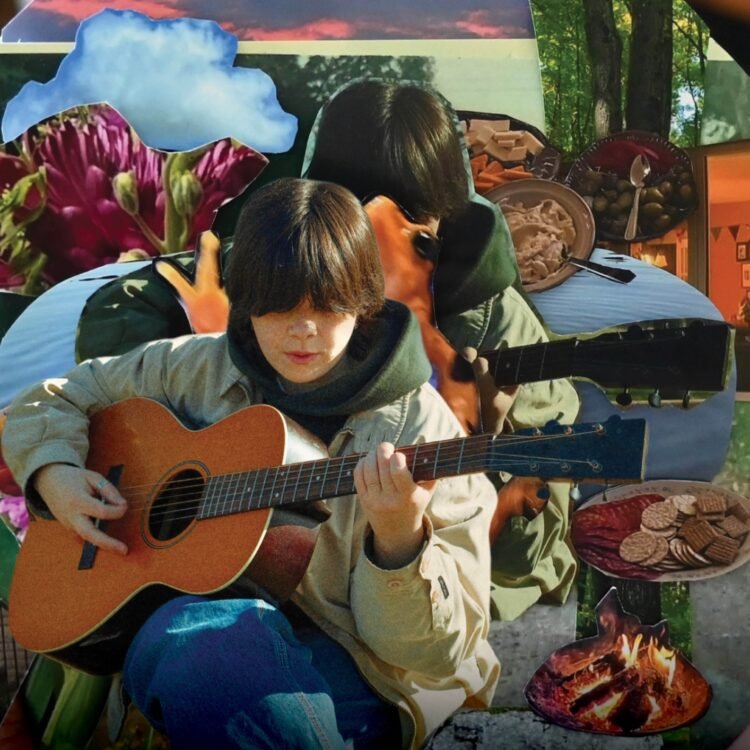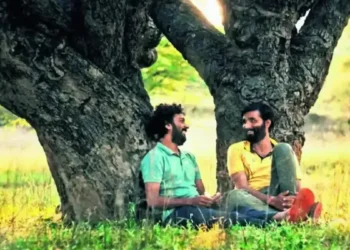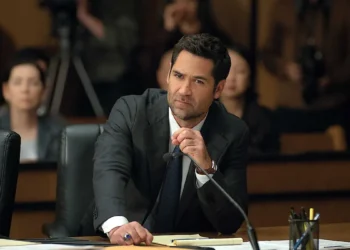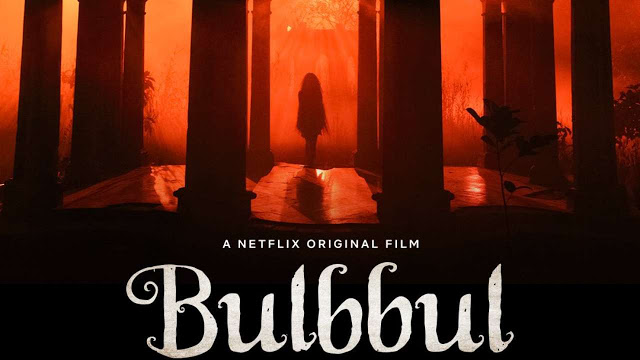A Fresh Chapter for Leith Ross
Indie-folk musician Leith Ross, once known for their melancholic, stripped-down style, is stepping into new territory with the release of I Can See The Future. Best recognized for their 2022 viral single We’ll Never Have Sex, Ross has built a reputation for touching on intimate themes like love, trauma, and vulnerability. With this latest project, however, Ross expands their sonic palette—bringing more energy, layered instrumentation, and brighter tones, while still staying true to their emotional storytelling roots.
Setting the Tone: From “Grieving” to Growth
The opening track, “Grieving,” immediately signals a shift in Ross’ approach. Despite its title, the song has an unexpectedly hopeful spirit, suggesting that grief itself can be viewed as a form of love expressed. This introduction establishes the duality of the album: acknowledging life’s pain while finding ways to transform it into resilience and deeper connection.
Musically, this song also reflects Ross’ evolution. While previous projects like Motherwell and To Learn leaned heavily on acoustic guitar, I Can See The Future introduces banjo, mandolin, percussion, and a more upbeat tempo. Some songs—such as “Stay” and “What My Love Is For”—retain the gentle simplicity fans know, but much of the album explores a livelier, more textured soundscape.
Love in the Everyday
A strong recurring theme throughout the album is intimacy in ordinary moments. Tracks like “What Are You Thinking About?,” “Stay,” and “I Love Watching You Eat Dinner” celebrate the small gestures and conversations that often carry the most meaning in relationships. Instead of focusing on grand declarations, Ross embraces the beauty of the mundane—showcasing how love thrives in simplicity.
This perspective makes the music feel both deeply personal and universally relatable. By highlighting how affection appears in daily life, Ross offers listeners comfort and connection through the familiar.
Exploring Perspective and Empathy
Another standout is “Point of View,” where Ross reflects on the impossibility of fully experiencing love through another’s eyes. The song acknowledges the limits of empathy while still emphasizing the importance of trying. This acknowledgment feels refreshing—shifting focus from striving for perfection in relationships to valuing continuous effort and understanding.
Time, Memory, and Storytelling
Ross’ strength as a storyteller shines in “Alone,” where they weave together past experiences of youth, heartbreak, and eventual self-growth. Here, solitude evolves from a heavy and suffocating presence into something softer and more comforting. The song illustrates how time reshapes our understanding of both love and loneliness.
This theme of time is echoed throughout the album’s structure, especially in the pairing of “Grieving” and its reprise later in the tracklist. While the original version is energetic, the reprise slows things down, leaning into a more somber tone. Together, they act as musical bookends—framing the album as a journey through evolving emotions and perspectives, culminating in an arc of hope grounded in realism.
Looking Forward with Hope
The closing title track, “(I Can See) The Future,” embodies Ross’ most optimistic vision yet. Unlike the earlier introspective tracks, this one looks outward—offering an imagined future filled with joy, love, and abundance. Rather than daydreaming, Ross sings with conviction, suggesting this better world isn’t just possible but inevitable.
Final Thoughts on I Can See The Future
Leith Ross’ I Can See The Future is more than an album—it’s a narrative on growth, empathy, and the passage of time. By blending their signature emotional depth with broader instrumentation and a more buoyant tone, Ross delivers a work that feels both introspective and expansive.
For longtime listeners, this project marks a clear evolution, showing that Ross is not confined to the “sad indie” box they were once placed in. Instead, they’re carving out space for joy, hope, and everyday love—proving that vulnerability can be as much about light as it is about darkness.























